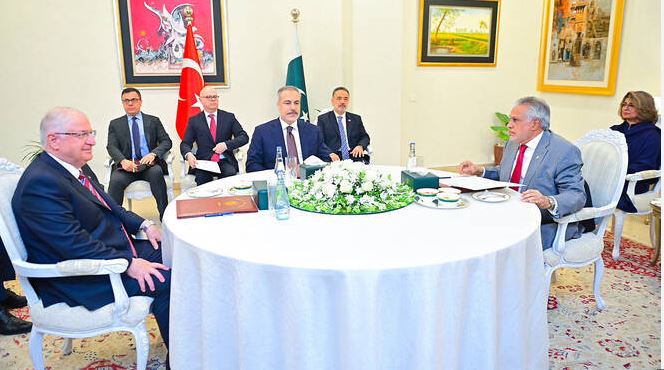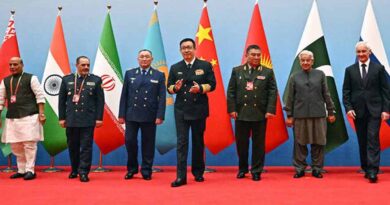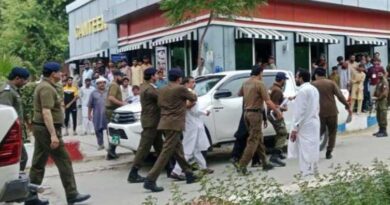No global power can challenge united Pakistan, Iran and Turkiye
Iran, Pakistan, Saudi Arabia and Türkiye can form a powerful alliance
Staff Report
ISLAMABAD: Iranian Ambassador to Pakistan Reza Amiri Moghadam has said that a united Pakistan, Iran and Turkiye would be an unstoppable force against any global power.
In a interview with a private television channel, he stated that during 12 consecutive days of aggression by the Zionist regime against Iran, the Pakistani government and people extended strong diplomatic support to Iran.
“Both Prime Minister and Foreign Minister of Pakistan condemned the aggression in unequivocal terms, while Pakistan’s envoy at international forums consistently stood by Iran. Resolutions in favour of Iran were also passed in the Senate and National Assembly of Pakistan. We are grateful to Pakistan for this support,” the ambassador said.
Moghadam said that perhaps no single event could have brought the two nations closer than this recent conflict. “The people and governments of both countries have drawn nearer. Our Parliament chanted slogans of ‘Thank You, Pakistan’, and the President of Iran officially expressed gratitude. At the funerals of our martyrs, alongside the Iranian flag, people held the flag of Pakistan. Iran and Pakistan are like one soul in two bodies,” he added, expressing thanks to the Pakistani public, religious circles, and media.
Addressing broader geopolitical concerns, he said that Iran, Saudi Arabia, Türkiye and Pakistan face shared challenges, especially as Zionist ambitions are backed by the US and Europe. “They aim to install Israel as a regional hegemon. However, Iran, Pakistan, Saudi Arabia and Türkiye can form a powerful alliance. Currently, relations among these nations are positive, and we must unite to advance this cause. If Pakistan, Iran and Türkiye join forces, no global power could rival them,” he asserted.
The ambassador emphasised the strategic assets each country holds, saying, “Pakistan has nuclear weapons, Iran has vast oil reserves, Türkiye holds industrial strength and a pivotal geographic position—being the gateway to Europe—while Saudi Arabia also plays a crucial role.”
“If China joins this alliance, it will be even more impactful. These nations must recognise both their threats and shared interests,” he said.
Moghadam said that there are no serious disputes among these countries, and a strong regional alliance is feasible. Referring to past tensions, he criticised former US President Donald Trump’s record, mentioning the assassination of General Qassem Soleimani.
“We did not want regional escalation. We accepted offers for negotiations and held five rounds, nearing a successful agreement. But just before the sixth round, on a signal from the US, Israel launched a surprise attack, targeting our military leadership, scientists, and civilians,” he added.
He said that Iran retaliated with missile strikes, saying, “Our response turned Israel’s streets into scenes resembling Gaza.” Following this, the US requested a ceasefire via the Emir of Qatar. “We said we will only stop if your aggression ceases. At that time, I was not in Iran, so I cannot comment on the nuclear programme in detail. However, the damage inflicted by the attacks was significant, and even experts find it hard to assess its full impact,” he said.
The ambassador added that Iran had been conducting such defence exercises for the past 15 years. “They assumed that by assassinating our commander, Iran would collapse. But the very next day, a new commander was appointed and responded with force. Nuclear technology in Iran is not limited to physical installations—it lives in the minds of our scientists and students. This technology cannot be erased. At most, they can damage our centrifuges,” he maintained.
Moghadam reaffirmed Iran’s continued cooperation with Pakistan. “The issues we face are along the border region, which is mountainous and difficult terrain. But today, Iran and Pakistan’s interests align more than ever before. Terrorist groups are being supplied with arms and facilities by enemies of both nations. Nonetheless, security cooperation between our countries is ongoing and will continue,” he affirmed.




